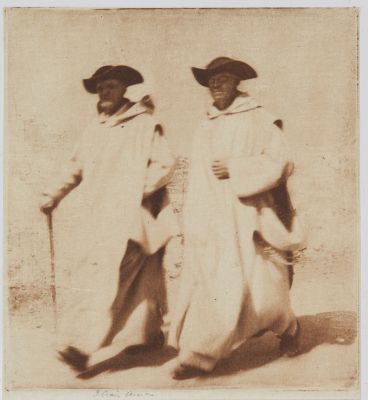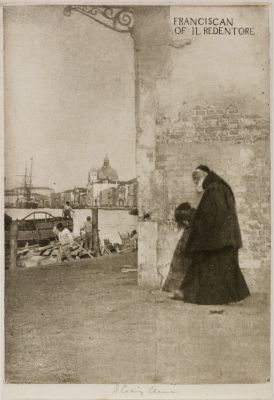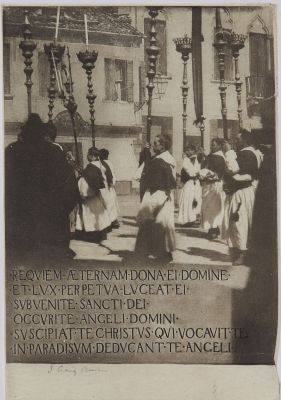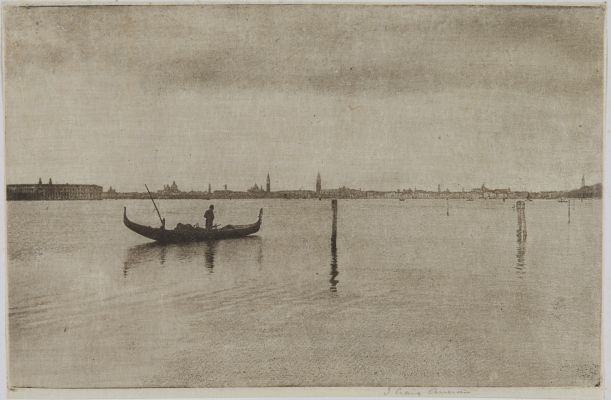
Title
The Riva SchiavoniArtist
Annan, James Craig (Scottish, 1864-1946)Key FigurePublication
Venice and LombardyDate
1896Process
PhotogravureAtelier
James Craig AnnanImage Size
10.5 x 14.4 cm
When his father died in 1887, Annan took over and continued to successfully run the family business, but about 1890 he grew restless and began to follow his own, artistic interests in the medium. He was particularly drawn to photography’s ability to render mood and atmosphere, as in this photograph. In it, Annan has employed his expertise in photogravure to subdue the edges of the figures in the foreground and unify the tonal character of the entire image in order to effect a stronger and more unified composition. The dynamic disintegration of form verging on the abstract is reminiscent of the paintings of James MacNeill Whistler—one of Annan’s favorite artists.
Annan did not receive any formal artistic training, instead studying chemistry and natural philosophy prior to becoming involved in photography. When his father secured the British patent rights in 1893, Annan was sent to Vienna to learn the technique of ‘heliogravure’ or photogravure from Karel Klíc. In the spring of 1892 Annan visited the Netherlands with his friend, Sir David Young Cameron, who informed Annan’s renowned ‘pictorial photography’. Annan also associated with other contemporary Glasgow painters and etchers, including Muirhead Bone and William Strang. In 1894 Annan and Cameron traveled to Italy and visited Venice, resulting in Annan’s Venice and Lombardy, a folio of 11 photogravures (etched and printed from copperplates), published in 1896. In an interview conducted in the same year Annan cited Japanese Art, Velasquez and Whistler as major influences. The works Annan produced in Venice testify to his deep regard for Whistler’s aesthetic principles. Through Annan, Whistler ultimately exerted a powerful influence upon other photographers, such as Stieglitz and Alvin Langdon Coburn.
Reproduced / Exhibited
This picture was exhibited all around the world – The MET The Modern and the Louvre in January, 23 1839
Naef, Weston J. The Collection of Alfred Stieglitz: Fifty Pioneers of Modern Photography. New York: Viking Press, 1978. no. 19
References
Morel, B. A, and Jean Baptiste Baillière. Traité Des Dégénérescences Physiques, Intellectuelles Et Morales De L’espèce Humaine Et Des Causes Qui Produisent Ces Variétés Maladives. Accompagné d’un Atlas de XII planches. Ces Variétés Maladives. Paris [etc.]: J.B. Baillière, 1857.











